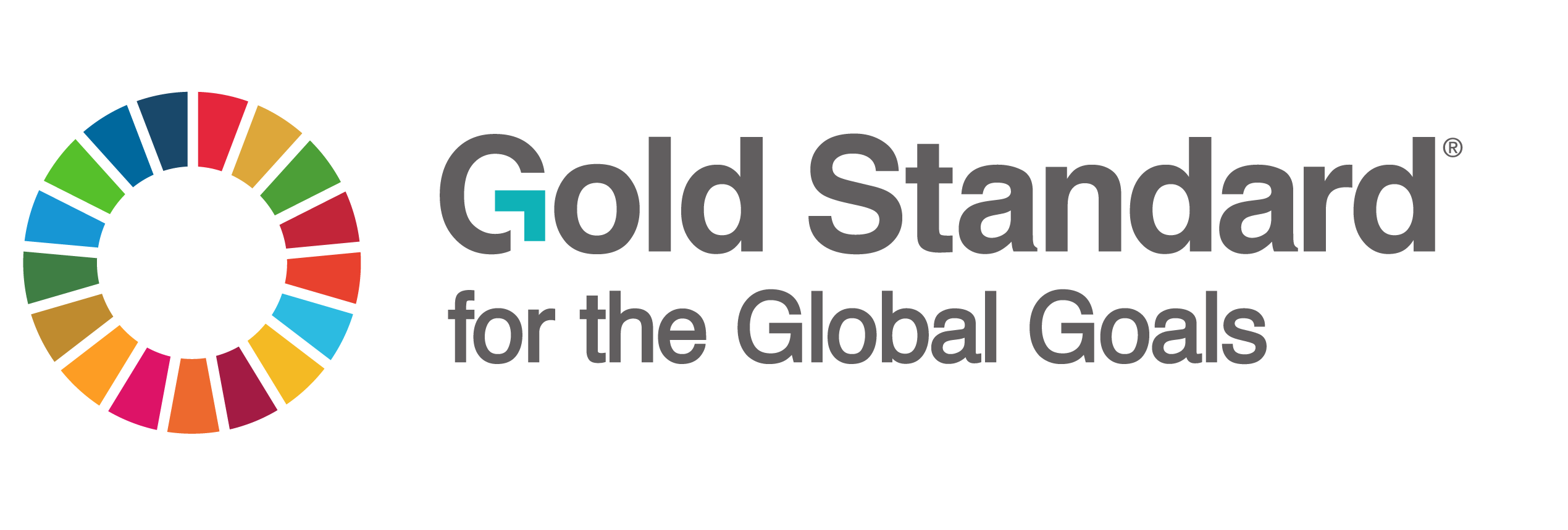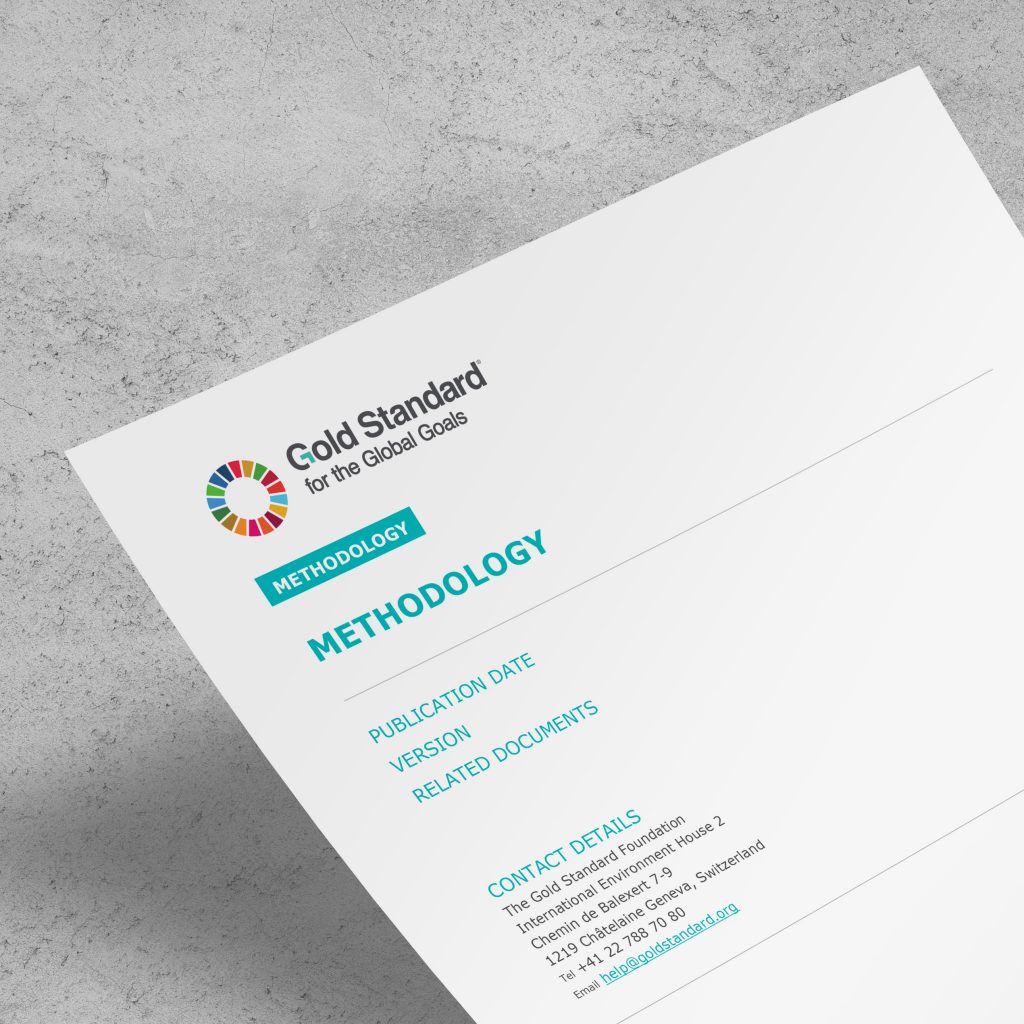The Transition Projects Hub hosts resources to support project developers seeking to transition projects to Gold Standard for the Global Goals from Clean Development Mechanism (CDM) or other standards.
This hub contains the key resources and standard documents needed to transition a project, and some additonal related information. It will be updated periodically to include new and updated resources, and to reflect user feedback. Gold Standard invites feedback and suggestions from all stakeholders on the resources hosted on this Transition Projects Hub to help@goldstandard.org.
CONTENTS
Stakeholders
Standard Documents
Additional information
RESOURCES FOR PROJECT DEVELOPERS
The following resources are provided to support project developers to transition projects from CDM or other standards to Gold Standard for the Global Goals.
Gold Standard maintains an up-to-date list of frequently asked questions related projects transitioning from other standards.
Accredited VVBs to validate and verify projects under Gold Standard
STANDARD DOCUMENTS

Mandatory requirements
– Projects wishing to transition from other standards must meet the requirements set out in Annex B
 GHG Emissions Reductions and Sequestration Product Requirements
GHG Emissions Reductions and Sequestration Product Requirements
For projects transitioning from CDM this document provides clarification on the application of GS4GG crediting period rules to CDM projects
RULE CLARIFICATION  Design Certification Renewal Requirements – CDM Projects Transitioning to GS4GG
Design Certification Renewal Requirements – CDM Projects Transitioning to GS4GG
– Project developers seeking Gold Standard certification must also comply with the following key documents:
 Principles & Requirements
Principles & Requirements
 Stakeholder Consultation and Engagement Requirements
Stakeholder Consultation and Engagement Requirements
 Safeguarding Principles and Requirements
Safeguarding Principles and Requirements
 Gender Equality Requirements and Guidelines
Gender Equality Requirements and Guidelines
 Activity Requirements
Activity Requirements
Optional RequirementS
– These requirements are applicable to certain types of projects.
– for designing and implementing a programme where multiple project activities can be developed under one umbrealla scheme.
– to seek deviation from Gold Standard for the Global Goals requirements and/or applicable methodologies
– to seek permanent changes to the implementation, operation and/or monitoring of a certified project activity or Programme of Activity
methodologIES
– Projects transitioning from CDM or other standards must apply a Gold Standard approved methodology – a list of these can be found in the Eligible Methodologies Tool The tool includes both Gold Standard methodologies and Gold Standard approved CDM methodologies.
 Eligible Methodologies Tool
Eligible Methodologies Tool
Tools and Templates
– The following tools and templates are provided to support project developers to implement their activities.
Projects transitioning from CDM or another standard to Gold Standard for the Global Goals must complete
Tool developed to help report, validate, verify, and track the contribution of project activities to the Sustainable Development Goals (SDGs) more efficiently and seamlessly.
This tool is a compulsory part of the certification programme under Gold Standard for the Global Goals. A digital version of the tool is now availble for use by project developers, validation and verification bodies, certification bodies and host countries.
RESOURCES FOR VALIDATION AND VERIFICATION BODIES
Coming Soon
FEES
Gold Standard fees can be found on in the fee schedule.
Revised fee model to support high-impacts projects transitioning from the CDM
These rates apply to projects transitioning from the CDM only.
They do not apply to Land Use + Forests projects.
| Cash Fee | SOP | ||
|---|---|---|---|
| Preliminary review fee | $ 900.00 | $ 900.00 | |
| Project design review | $ 0.15 | $ 0.05 | per credit (1st year issuance) minus Preliminary Review Fee paid |
| Performance review | $ 1000.00 | $ 1000.00 | |
| Issuance fee for 1st year issuance | $ 0.15 | $ 0.05 + 2% issued GSVERs | per credit (1st year issuance) minus Preliminary Review Fee paid |
| Issuance fee for subsequent year issuances | $ 0.30 | $ 0.10 + 2% issued GSVERs | per credit minus Performance Review fee paid |
SALE OF CREDITS
There are multiple ways for project developers to sell credits in order to raise carbon finance for the implementation of activities. These include those listed below.
Direct purchase
Some companies seek to purchase carbon credits directly from project developers. They may seek emission reduction purchase agreements early in a project’s development, through which the company secures the right to purchase future credits at a pre-agreed price.
Accredited service providers
Some companies purchase carbon credits through service providers, who support companies with emission reduction services as well as their purchase of carbon credits.
The International Carbon Offsetting and Reduction Alliance (ICROA) operates an accreditation programme to uphold good practice among service providers, with accredited organisations listed here.
Marketplaces
Carbon credit marketplaces provide a platform for individuals or organisations to purchase carbon credits either directly from project developers, or from intermediary holders of carbon credits. Credits are typically sold at a fixed price through such marketplaces, set by the seller.
Gold Standard operates a Marketplace available to any project developer that has available credits issued to a Gold Standard-certified project.
Other established marketplaces include:
Exchanges
Exchanges provide a platform for organisations to buy and sell carbon credits, either through the sale of batches of credits from an individual project, or through standardized contracts.
Established carbon credit exchanges include:
In recent years there has been a growth in national exchanges for the sale of carbon credits, alongside international exchanges such as those listed above.
Article 6 cooperation
An increasing number of governments are entering into bilateral agreements to transfer ‘mitigation outcomes’ under Article 6 of the Paris Agreement. Under some of these bilateral agreements, governments – or entities acting on their behalf – seeking to acquire mitigation outcomes are publicly procuring for projects that can deliver mitigation outcomes for use towards the acquiring country’s Nationally Determined Contribution (NDC).
An overview from IETA of announced bilateral agreements between governments, including those involving the Government of Vietnam, can be accessed here.
ADDITIONAL RESOURCES
GOVERNMENT POLICIES AND REGULATIONS
Gold Standard is currently developing a public tracker of government regulations. This will provide an overview of regulations related to carbon market activities in many jurisdictions globally. The public tracker is expected to launch in June 2024.
The public tracker will be posted here when available.
FURTHER SUPPORT
If you would like further technical support or guidance from the Gold Standard Secretariat, including support with the use of any of the resources provided in this hub, please contact help@goldstandard.org.


